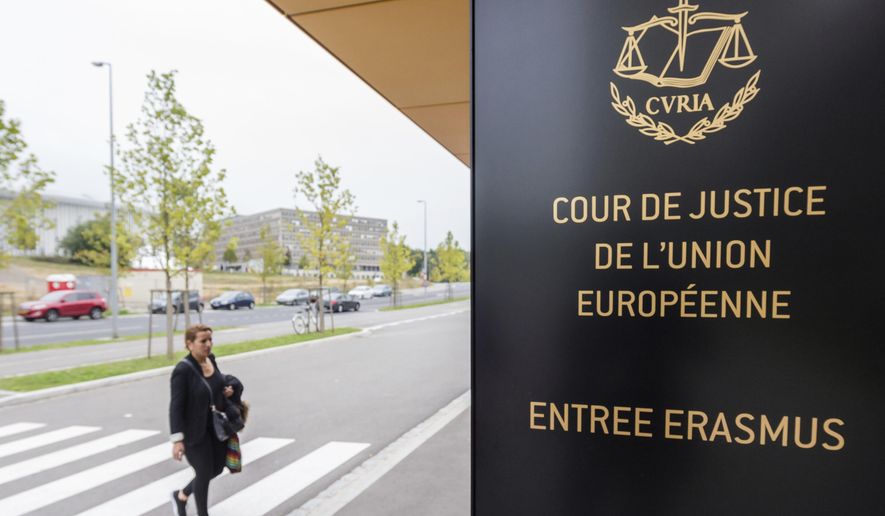The Court of Justice of the European Union ruled Thursday that employers can ban Muslim headscarves and other religious or political apparel if the firm wants to “present a neutral image” to customers.
The ruling, in an appeal of two cases brought in Germany’s federal labor court, is a sharp contrast to the 2015 Supreme Court decision in EEOC vs. Abercrombie & Fitch Stores, in which the American high court ruled 8-1 in favor of a U.S. Muslim woman’s right to work while wearing a headscarf.
In a news release, the Court of Justice said that because the clothing ban was “neutral” in its application — because it covered all sorts of religious or political attire — it doesn’t create discrimination “inextricably linked to religion or belief.”
The court did say that religious liberty protections among the EU states “may be taken into account as more favorable,” but did not mandate that such free exercise provisions take precedence over other rules, only that “the principle of proportionality” be observed.
The two cases from Germany will now return to courts there for final adjudication, based on the EU court’s ruling.
The decision will cover all 27 European Union member nations, even those with greater religious liberties protections such as Austria, Germany, and the Netherlands.
The Open Society Justice Initiative, which counts “discrimination and equality” issues as part of its portfolio, stated the ruling may be used to exclude Muslim women and other religious minorities from Europe’s workplaces.
“Laws, policies, and practices prohibiting religious dress are targeted manifestations of Islamophobia that seek to exclude Muslim women from public life or render them invisible,” Maryam H’madoun, senior policy officer at the group said in a statement. “Discrimination masquerading as ‘neutrality’ is the veil that actually needs to be lifted. A rule that expects every person to have the same outward appearance is not neutral. It deliberately discriminates against people because they are visibly religious.”
Noting that other courts in Europe have decreed that the wearing of a headscarf does not give rise to a “genuine need” for a general ban on religious attire, Ms. H’madoun said, “Such policies and practices stigmatize women belonging to or perceived to belong to Europe’s racial, ethnic, and religious minorities, increasing the risk of higher rates of violence and hate crimes, and risking the intensifying and entrenching of xenophobia and racial discrimination, and ethnic inequalities. Employers who implement these policies and practices should tread carefully, as they risk being found liable for discrimination under both European and national laws if they can’t demonstrate a genuine need for a religious dress ban.”
In the U.S., the Council on American-Islamic Relations (CAIR) condemned the European ruling.
“The freedom to practice one’s faith, including by wearing a hijab in the workplace, is a fundamental human right,” Nihad Awad, the group’s executive director, said in a statement.
CAIR called the decision “the latest example in a disturbing pattern of global Islamophobia. We stand in solidarity with the European Muslim community as they work to address this unjust, irrational and bigoted ruling.”
The issue of headscarves and similar attire such as the Jewish skullcap, or kippah, has been a contentious one in Europe in recent years.
During a wave of antisemitic attacks in France, some Jews removed their head-covering. In 2019, Germany’s antisemitism commissioner, Felix Klein, told an interviewer he couldn’t “advise Jews to wear the kippah everywhere all the time in Germany.” In response, Bild, the nation’s largest daily newspaper, published a cut-out skullcap for readers to wear in solidarity.
• Mark A. Kellner can be reached at mkellner@washingtontimes.com.




Please read our comment policy before commenting.